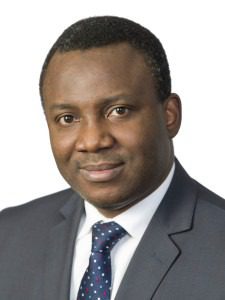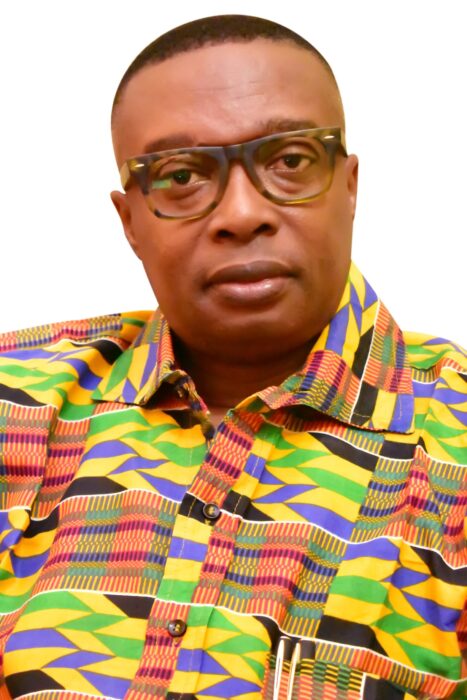Political Issues
What Brand of Progressivism Appeals to Mr. President and APC? -By Kenneth Amaeshi


Kenneth Amaeshi
…after all said and done, the key question remains: what brand of progressivism appeals to Mr. President and his political party; or is progressivism, in this case, the pursuit of some primordial interests with a different name?
On the surface, the 2015 presidential election in Nigeria looked calm, free, and straightforward to an oblivious onlooker, such that it has been widely acclaimed as a triumph for democracy. The politics behind the election was choreographed as a benign choice between the old and the new; the status quo and change; the corrupt and the renewed; a choice between hard-headed pragmatism and utopian idealism. It was also sold as progressive politics.
Progressive politics often means different things to different people. For some people, it is just a name for anything that resembles change; and a change from one administration to another, for instance, qualifies as progress and, therefore, is an expression of progressivism. For others, it is an ideology and something much deeper than the mere change of administrations.
Progressivism, as a political ideology, tends to prioritise human freedom over old institutions (including doctrinal and theocratic foundations). It is an aspiration for a better, inclusive, and harmonious society. It embodies a sense of discovery, which often requires some risk-taking, new knowledge, and new ways. In that regard, progressivism shares a lot in common with entrepreneurship, as an act of creative destruction and bringing forth the new. In this arena, the progressive exists in a perpetual disequilibrium, which necessitates an engagement in constant experimentation in the bid to push the frontiers of governance for a better, inclusive, and harmonious society.
Progressivism is naturally attractive to many people. Beyond the quest for freedom and harmonious societies, the term itself has a positive spin. No one, for example, would like to be seen as anti-progress. As such, progressivism is seductively commoditisable and consumable. Commoditisation is, arguably, an art of persuasion to extract value from the buyer and create value for the seller. By extension, therefore, brands are inherently persuasive and therein lies their efficacy. However, one of the inherent dangers of commoditisation, as a marketing activity, is misrepresentation. Through their persuasiveness, real, as well as fake, brands are conspicuously produced and consumed.
Notwithstanding, in the spirit of progress, the true progressives – in and outside the party in power – now have the chance, responsibility, and duty to ensure that progressive ideals are pursued. The achievement of this goal will be a true test for all who claim to be progressives.
Unfortunately, commoditised progressivism can also manifest as a fake brand, and masquerade as true progressivism. To an undiscerning mind, there is no difference between true progressivism and fake progressivism, and herein lies the tragedy of politics in contemporary Nigeria.
From the look of things, the 2015 elections offer something quite unique and quintessential to Nigeria’s brand of politics and democracy. The more one tries to dissect this uniqueness, the more it eludes intellectual grip. This elusion is both subtle and complex. It is subtle because it offers contradictory views. On one hand, it presents itself as a progressive agenda for all Nigerians. In truth, it is difficult (if not fool-hardy) to counter this aspiration. Many Nigerians want a better country for all. On the other hand, the challenge has always been on how to get to this better society, and on whose terms – this is where ethnic, religious, and other primordial sentiments set in, and herein lies the fault-line of this glamorised sense of progressivism. It is complex because the contradictory views offered are interwoven in a complementarily strange manner, which have become difficult to disentangle.
The current regime embodies these complexities. Mr President’s body language (i.e. his public anti-corruption stance) and some of his utterances (e.g. his wish to give preference to those who voted for him) and appointments so far (significant number from his region) in the last 100 days, for example, are illustrative of the complexity mentioned above. To say the least, they are controversial for many very good reasons, which have been extensively articulated, critiqued, and defended by political analysts of various shades and inclinations in the media. His political party – the All “Progressives” Congress (APC) has had its share of the controversies. There is no intention to rehearse those here; but after all said and done, the key question remains: what brand of progressivism appeals to Mr. President and his political party; or is progressivism, in this case, the pursuit of some primordial interests with a different name?
Notwithstanding, in the spirit of progress, the true progressives – in and outside the party in power – now have the chance, responsibility, and duty to ensure that progressive ideals are pursued. The achievement of this goal will be a true test for all who claim to be progressives. As the saying goes, the taste of the pudding is in the eating, and herein lies the paradox of change and progressive politics in Nigeria!
Kenneth Amaeshi is a member of the Thought Leadership Forum (TLF), Nigeria, a Visiting Professor at Lagos Business School, and an Associate Professor (Reader) in Strategy & International Business at the University of Edinburgh, United Kingdom. Twitter handle: @kenamaeshi



















